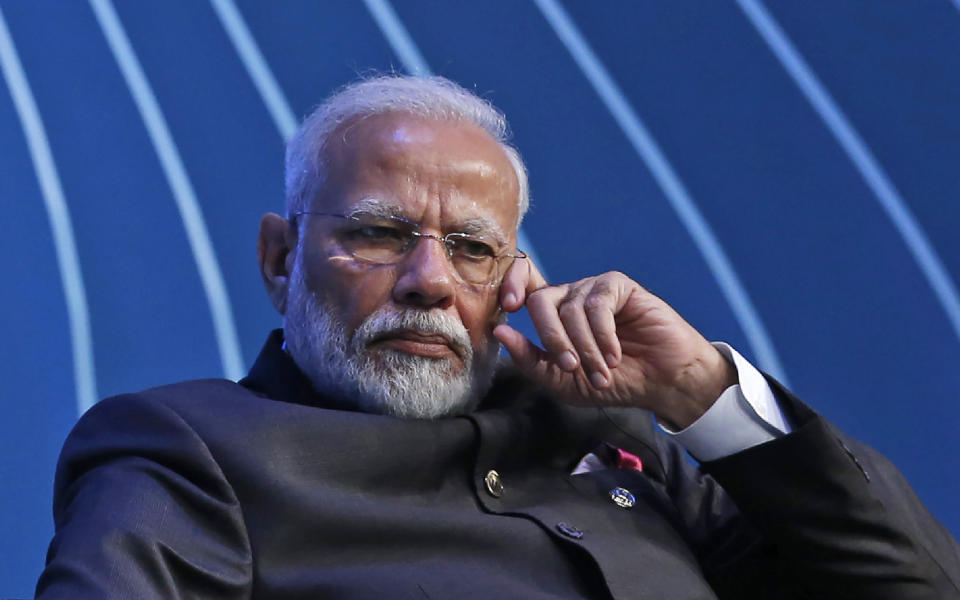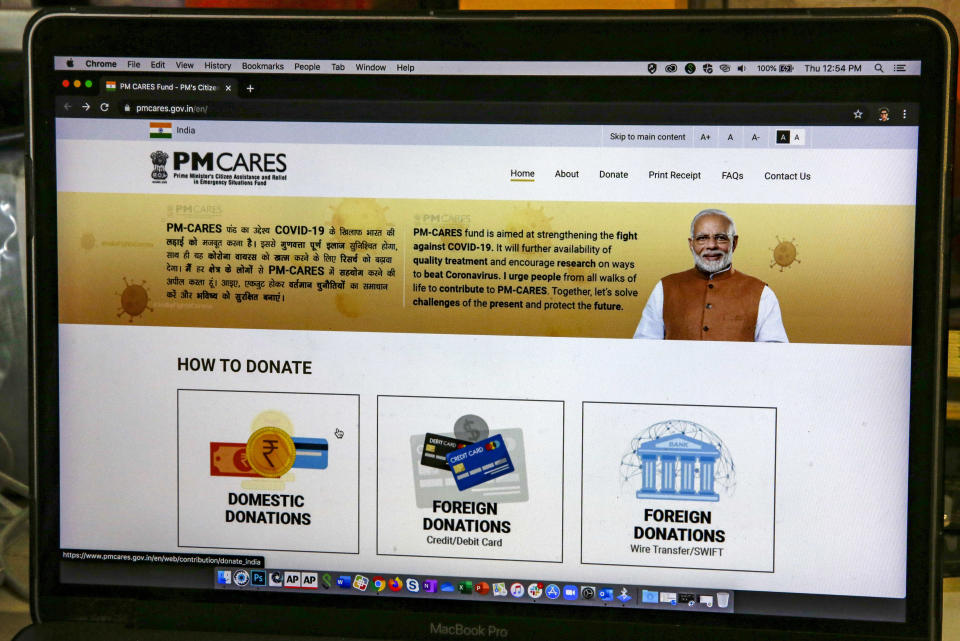NEW DELHI (AP) — Bejon Misra responded quickly to Indian Prime Minister Narendra Modi’s appeal in March for donations to a new fund to strengthen the country's fight against the coronavirus.
The next day, the 69-year-old retired management professor made a donation.
“It was a generous contribution because Modi is the face of it,” Misra said.
Such trust in Modi is common in India, with the prime minister enjoying an 82% public approval rating, according to U.S.-based pollster Morning Consult.
So when the Prime Minister’s Citizen Assistance and Relief in Emergency Situations Fund, or PM CARES, was launched days after India started a countrywide virus lockdown, donations began pouring in and haven't stopped.
Retirees like Misra, industrialists, Bollywood stars and foreign companies have all pitched in. But the fund, now valued at more than $1 billion, has run into controversy over issues of transparency and accountability.
The Associated Press requested a list of donors and payments from Modi's office under the Right to Information Law, which gives citizens access to information from India’s often opaque bureaucracy. The request was denied.
Modi’s office, which manages PM CARES, has refused to disclose the information, arguing that even though it is administered by the Indian government, it is not a public authority, and therefore not subject to right-to-information laws. As a result, there is little transparency about the money the fund is receiving and spending in the middle of India's still-raging virus outbreak.
“It’s not a state secret and the government must answer the questions that are being raised,” said Saket Gokhale, an independent activist who was one of the first to question the fund. “They are stonewalling.”
Legal experts are challenging the response of Modi's office.
Surender Singh Hooda, a lawyer at India’s top court, filed a petition on June 5 arguing that the fund’s website must display details of the money received and the way it is used. The Delhi high court told Hooda to withdraw his petition and contact Modi’s office first, as is required by law.
Modi's office denied Hooda's request for information.
“The money has been collected under the name of the prime minister and millions of ordinary citizens have donated to it. The least we expect is some transparency,” Hooda said.
Modi is the fund's chairman, and the powerful home minister, Amit Shah, and the ministers of defense and finance sit on its board. But unlike other government-administered funds, it isn't audited by India's Comptroller and Auditor General. Instead, Modi appointed a private business consulting firm, SARC & Associates, to audit the fund 12 days after it donated $212,665 to it.


